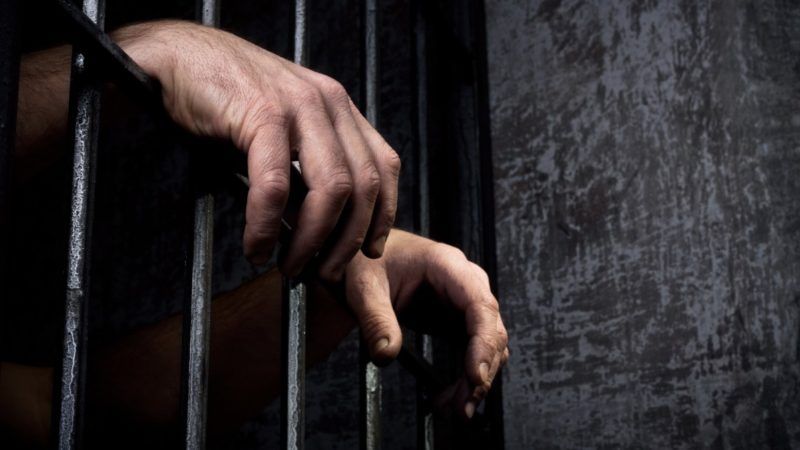Federal Judge Calls Plea Bargain Deals That Limit Compassionate Release 'Appallingly Cruel'
Congress expanded compassionate release to allow inmates to petition judges, but federal prosecutors tried to use plea bargain agreements to subvert reforms, the judge says.

A federal judge in San Francisco criticized federal prosecutors on Monday for including language in a plea bargain that sharply narrowed the defendant's rights to request compassionate release under recent criminal justice reforms passed by Congress, calling the proposed deal "appallingly cruel," "unconscionable," and "inhumane."
Judge Charles Breyer of the U.S. District Court for the Northern District of California rejected a proposed plea agreement between the U.S. Attorney's Office for Northern California and defendant Allan Josue Funez Osorto, who is facing federal drug charges. Breyer found that the plea agreement's language subverted the provisions of the FIRST STEP Act, which was passed by Congress in late 2018.
"Although Congressional intent alone would be sufficient reason to reject the Plea Agreement, there is another reason that the compassionate release waiver renders it unacceptable," Breyer wrote. "Plainly put, its effects are appallingly cruel."
Compassionate release is a policy within the Bureau of Prisons (BOP) that allows inmates who are terminally ill, disabled, or who have unforeseen family tragedies to petition for early release. However, the BOP's petition process was arbitrary, inscrutable, and interminable. Between 2014 and 2018, at least 81 federal inmates died while waiting for the government to review their applications. To fix this problem, Congress expanded compassionate release under the FIRST STEP Act, giving inmates the ability to petition judges for release if the BOP ignored their request for more than 30 days.
This judicial escape hatch has become even more important in recent months. In an effort to alleviate potentially deadly outbreaks of COVID-19, Attorney General William Barr directed the BOP to use compassionate release and other methods to get elderly and at-risk inmates out of federal prisons.
Osorto's plea agreement would have required him to waive his right to petition a judge for compassionate release after 30 days of BOP inaction. Instead, he would have to exhaust his administrative remedies through the BOP ("no mean task," Judge Breyer noted) or wait 180 days.
"What's worse—that this is a disgusting use of prosecutorial power? Or that it's completely unsurprising?" says Kevin Ring, president of the criminal justice group FAMM, which has advocated for expanded compassionate release for many years. "These types of abuses will not end until more judges do what Judge Breyer did here and call them out."
U.S. Attorney for the Northern District of California David Anderson told Law.com that his office changed the waiver language last week after hearing from local defense attorneys:
"We are working hard to protect the community one case at a time. Nothing in the record suggests this defendant Funez Osorto is particularly at any unusual health risk," Anderson said. Anderson said that in older cases, where the office had negotiated a full waiver of compassionate release, the office has allowed prisoners to bring compassionate release motions "where we thought such a waiver would be fair to the defendant."
Breyer noted in his order that federal prosecutors had recently used similar waivers to oppose compassionate release petitions filed in his court.
"That result is unacceptable for two reasons," Breyer wrote. "First, it undermines Congress's intent in passing the First Step Act. Second, it is inhumane."
Noting the BOP's "dismal record" on compassionate release, the judge concluded that "because this waiver provision undermines Congressional intent and is an unconscionable application of a federal prosecutor's enormous power to set the terms of a plea agreement, the Court cannot approve of the proposed Plea Agreement in this case."
So far, 49 federal inmates have died of complications from COVID-19. More than 3,300 inmates and 250 BOP staff are infected, according to the latest numbers from the BOP. Those deaths include a woman who was sent to federal prison for a nonviolent drug crime while in her third trimester of pregnancy.
Although Attorney General Barr ordered the BOP to identify and release at-risk inmates, advocacy groups and family members of inmates say confusing rule changes, resistance from prison wardens, and a generally slow process have hamstrung the federal government's efforts. In many cases, inmates were told they had been approved to go home, put in pre-release quarantine, and then abruptly told they were no longer eligible and sent back.
In a letter to Congress yesterday, a group of federal public defenders warned that the Department of Justice (DOJ) and the BOP "have made little use of these authorities to reduce prison populations and enable social distancing."
"Despite repeated Congressional directives that DOJ use compassionate release expansively during this crisis," the federal defenders wrote, "BOP facilities have refused to accept or review compassionate release requests and prosecutors have adopted a nearly default opposition to release."
Show Comments (7)